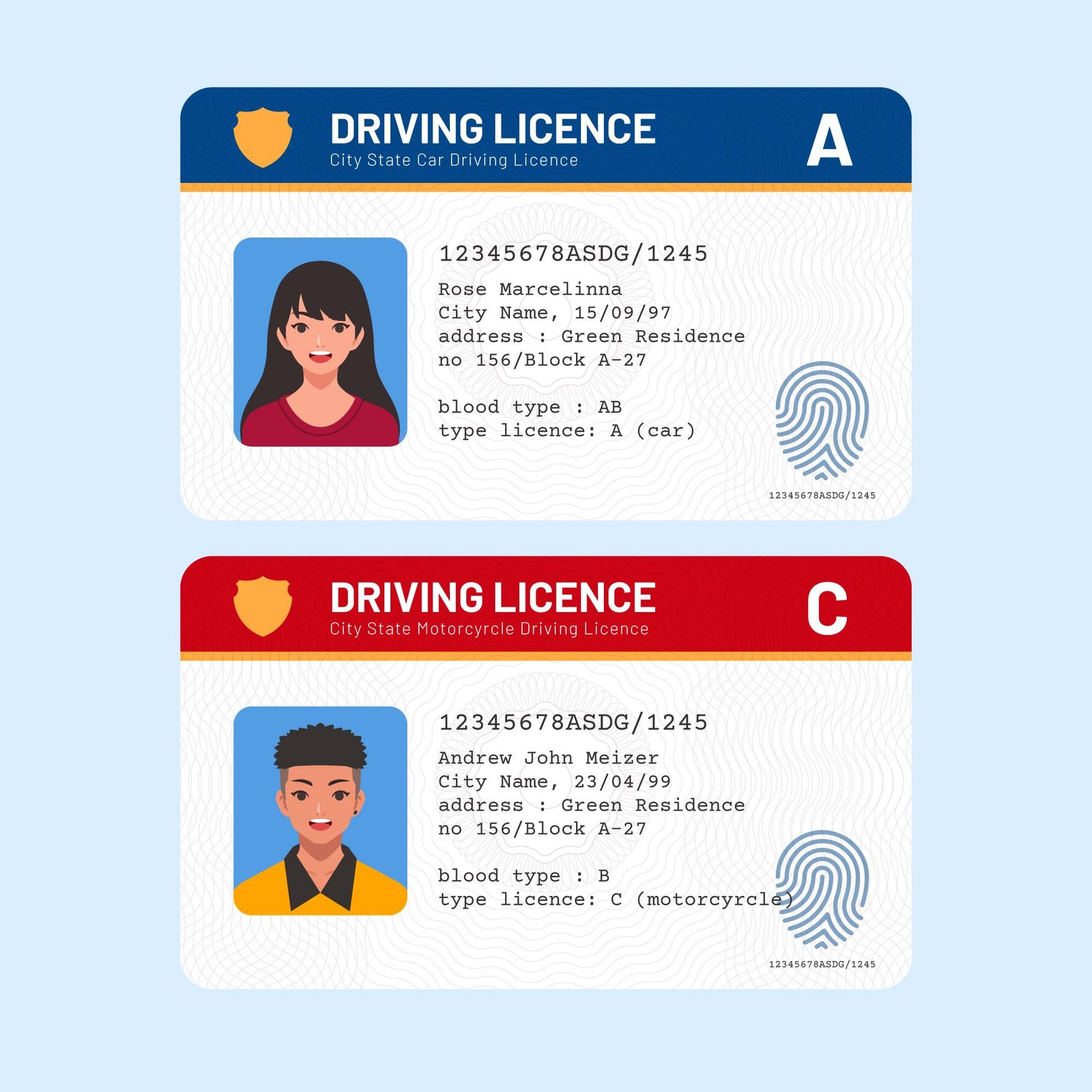No products in the cart.
Discover the different types of driving licenses offered in Laos and which one you need.

Driving in Laos requires a valid license issued by the Department of Public Works and Transport (DPWT). Whether you’re a local resident or an expat, understanding the different categories of driver’s licenses ensures you stay compliant with Lao regulations. In recent years, the Lao government has introduced more standardized processes, aligning with ASEAN regional practices.
This article breaks down the types of driving licenses in Laos, eligibility requirements, and how international residents can use or convert their licenses
1. Motorcycle Licenses (Category A)
Motorcycles are the most common form of transport in Laos, particularly in Vientiane and provincial cities. A Category A license is required for:
A1: Motorcycles under 125cc (light motorcycles, scooters).
A2: Motorcycles over 125cc (big bikes, often used by enthusiasts or transport companies).
Requirements:
Minimum age: 18 years.
Must pass a theory test (traffic rules, road safety).
A short practical test, usually around the DPWT test grounds.
For daily commuting, most Lao citizens hold an A1 license. Expats who drive scooters will also need this license unless they already have an equivalent valid international permit.
2. Car Licenses (Category B)
Category B covers passenger cars and light vehicles that define daily private transportation:
B1: Cars with up to 9 passenger seats or small vans/light trucks weighing under 3.5 tons.
B2: Slightly heavier private or commercial vehicles.
Requirements:
Minimum age: 18 years.
Medical certificate (confirming good eyesight and general health).
Both theory and practical road tests.
This is the most common category for both Lao citizens and expatriates who purchase or rent cars.
3. Heavy Vehicle Licenses (Categories C, D, and E)
For professional drivers — truck operators, public transport drivers, or logistics companies — Laos has strict license categories to ensure safety:
C: Medium trucks and goods vehicles over 3.5 tons.
D: Buses with more than 9 seats, including public and private passenger operators.
E: Heavy trailers and articulated trucks.
Key Points:
Applicants must already hold a valid Category B license.
Minimum age for professional licenses: 21 years.
More challenging road tests and professional driver health requirements.
These categories are crucial for growing industries in Laos, especially with increasing trade across ASEAN borders.
4. International Driving Permits (IDP) in Laos
For short-term visitors or expats, an International Driving Permit (IDP) is recognized in Laos if it follows the 1968 Vienna Convention on Road Traffic. Countries such as France, Japan, Korea, and Thailand issue valid IDPs.
However, if you plan to stay long-term (e.g., for work or study), you must convert your foreign license into a Lao license. Conversion usually requires:
Notarized translation into Lao language.
Embassy verification.
Application at the Vientiane DPWT office.
5. Digital Developments in Licensing
Recently, Laos has joined other ASEAN nations in moving towards e-services for driving license management. As of 2024–2025, certain provinces pilot digital driver records and future plans include e-license QR codes for easier verification by traffic police.
This shows the government’s commitment to digital transformation, consistent with wider IT modernization — from e-visas to e-tax systems.
Conclusion
Driving legally in Laos requires the correct license category, whether you’re riding a motorbike in Luang Prabang or managing logistics transport across borders. With the government modernizing services, the process is becoming easier for both locals and foreigners.
By knowing which category fits your vehicle and status, you can avoid fines, stay compliant with Lao traffic laws, and take advantage of future digital licensing services.
About CITS Laos
Looking to navigate driving regulations, government services, or digital innovations in Laos? CITS Laos is your trusted partner for technology solutions, government service guidance, and up-to-date resources for everyday life. Whether you’re a local, expat, or business owner, explore our website at cits.la for the latest tips, digital support, and personalized services to make your experience in Laos seamless.